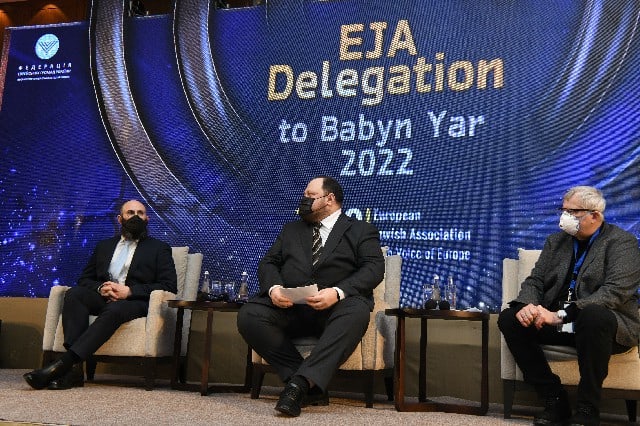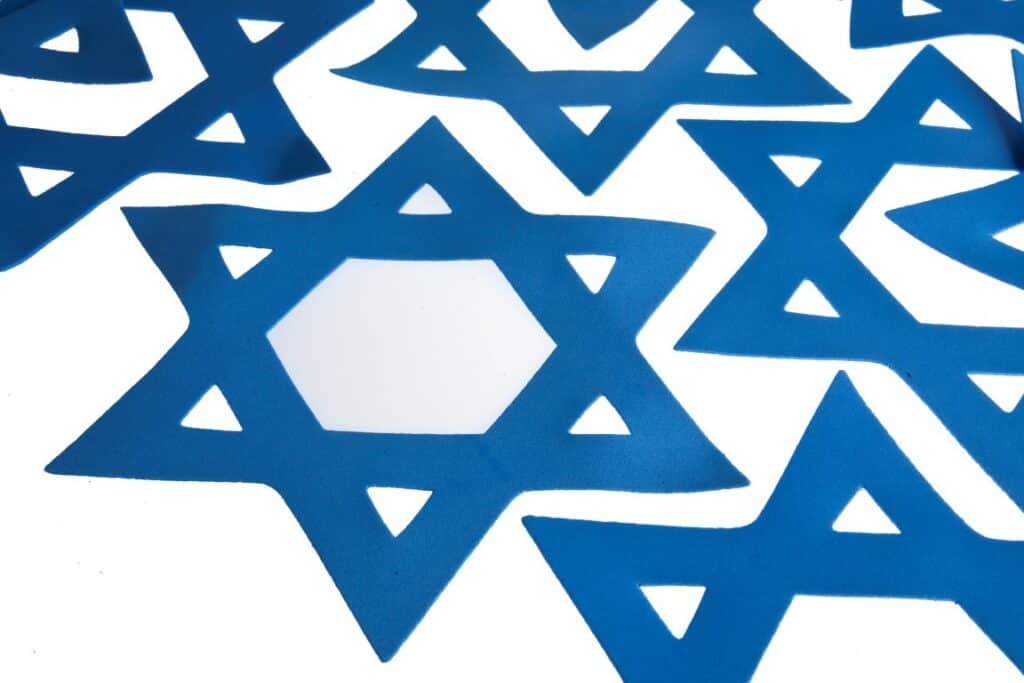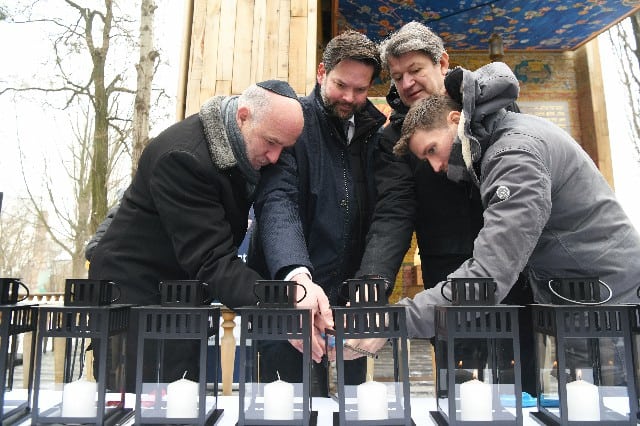Guardare al futuro, alla lotta all’antisemitismo, senza dimenticare la storia, specialmente la Shoah e i suoi massacri. La memoria può dunque diventare un punto di partenza per riflettere anche sul futuro e sul presente dell’ebraismo europeo. Queste le premesse con la quale è stato aperto il simposio, organizzato dall’European Jewish Association, dai partner del Babyn Yar Holocaust Memorial Center e della Federazione delle Comunità Ebraiche dell’Ucraina, in occasione della Giornata della Memoria dedicata al massacro di Babyn Yar avvenuto a Kiev.
Tra il 29 e il 30 settembre del 1941, un reparto speciale Einsatzgruppe tedesco, assistito da due battaglioni del reggimento di polizia sud e polizia ausiliaria Ucraina, senza alcuna resistenza da parte della popolazione locale, uccisero all’interno del burrone Babi Yar, situato nel nord-ovest di Kiev, circa 33 771 ebrei. Il Babyn Yar Holocaust Memorial Center è stato creato dal decreto del presidente ucraino Petro Poroshenko il 20 ottobre 2017. Con questo l’Ucraina proponeva un nuovo approccio alla conservazione della memoria storica di quei tragici eventi. “L’Ucraina è il quarto paese per numero che sono state annoverate tra coloro che furono “Giusti tra le nazioni”. Il parlamento ucraino ha recentemente adottato una legge per combattere e prevenire l’antisemitismo nel paese e per commemorare la Shoah. La memoria è l’unico modo per combattere l’antisemitismo – ha detto nel corso della conferenza il Presidente del parlamento ucraino, Ruslan Stefanchuk- Le atrocità sono avvenute spesso perché la gente è rimasta in silenzio a causa della paura, dell’indifferenza e dell’egoismo. Lo studio della Shoah oggi è di particolare importanza per il popolo ucraino.”
Una delegazione di circa cento ministri, parlamentari, senatori, ambasciatori e giornalisti di tutta Europa riuniti in Ucraina. Due giorni intensi di seminario volti ad analizzare l’emergenza dilagante del nuovo risveglio dell’antisemitismo. Un momento per riunirsi, confrontarsi e discutere, ma soprattutto per tentare di accogliere la sfida di combattere l’antisemitismo in atto in Europa. Non nascondersi, ma affrontare il passato con un rinnovato senso di pragmatismo, trovando strategie per fronteggiare l’odio antiebraico di oggi, in tutte le sue forme.
Babyn Yar: una vergognosa pagina della storia, per anni nascosta. Al termine del seminario la delegazione si è recata nel luogo dove furono trucidati milioni di innocenti per una visita al centro Babyn Yar seguita da una cerimonia. Il memoriale, in seguito a moltissimi sforzi per commemorare le sue vittime, ha trovato la sua ubicazione, cinque anni fa nello stesso luogo dove avvenne la tragedia.
Ad intervenire, nel corso della serata, anche il Presidente del consiglio del Babyn Yar Holocaust Memorial Center Natan Sharansky. Sharansky, nel suo videomessaggio, ha sottolineato come le autorità sovietiche abbiano tentato insabbiare l’accaduto cancellando ogni ricordo del massacro avvenuto in quel burrone. “Una commemorazione importante non solo per le vittime e per onorare la loro memoria- ha aggiunto Sharansky -ma anche per garantire che le lezioni della storia vengano apprese e ricordate nell’era in cui viviamo oggi”.
“Sono nato pochi anni dopo la Shoah, sono cresciuto in Ucraina tra i campi di sterminio, eppure non ne sapevamo nulla – spiega al pubblico Sharansky – Ecco perché oggi è così importante che il Babyn Yar Holocaust Memorial Center, che ho l’onore di presiedere, stia facendo grandi sforzi per trasformare questa “grande tomba della Shoah” in un grande museo con il suo centro di ricerca e studio. Stiamo facendo tutto questo collaborando strettamente con il governo ucraino.”
https://www.shalom.it/blog/orizzonte-europa-bc251/il-simposio-a-babyn-yar-a-accettare-le-sfide-del-futuro-senza-dimenticare-la-memoria-del-passatoa-b1109801?fbclid=IwAR1g9_70Nyjy_rku4MgCIqlbM2bCewRz0XU2N9KhGFiZHvwhnQamV45wETY
















